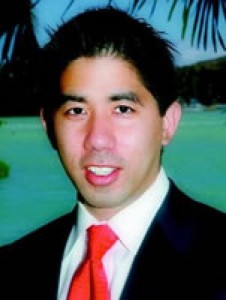 Based upon the number of responses it elicited there clearly was no shortage of interest in Part One of this series. I can understand why. Many annuity agents have been thrust into something of a netherworld by events largely beyond their control.
Based upon the number of responses it elicited there clearly was no shortage of interest in Part One of this series. I can understand why. Many annuity agents have been thrust into something of a netherworld by events largely beyond their control.
Annuity agents are experiencing a continuing disruption of their traditional sales practices that began with the issuance of NASD (FINRA) NTM 05-50. For agents it can seem as though everything they once viewed as stable has come under assault including their public image, the products they sell, the advice they provide, the seminars they use, not to mention the comparatively lax suitability and compliance standards from the recent past. It’s no wonder that many agents wish for a quick and easy end to the pain. But pain relief comes at a cost than can be significant.
Scare tactics are clearly not out-of-bounds when used by those pitching annuity agents on the Registered Investment Advisor “answer.” “REAP THE REWARDS OF INDEXED ANNUITY SALES WITHOUT THE FEAR” is a prominent theme of the “pitch.” But is becoming a fiduciary advisor really the answer?
In Part One of this series I argued that the RIA option may not prove viable for many annuity agents. The reason is that for the RIA transition to be successful, an annuity agent must be willing to undergo a radical transformation in terms of allegiance (in both a practical and strict legal sense) and in the manner in which he or she is compensated. How many will sign-up to undergo such a dramatic transformation?
It was advertising directed to annuity agents that I characterize as exploitive that first got me interested in this subject back in April. I saw print and video advertising designed to convey both overt and covert messages. The thrust of the advertising- the “pitch”, if you will- seemed to convey that it’s possible for annuity agents to retain their customary sales and marketing strategies and compensation model while also operating as a Registered Investment Advisor.
This assertion was and is the “rub” as far as I’m concerned. I’m all for swelling the ranks of RIAs. However, I also believe it is grossly unfair to lead annuity agents to conclude that they can continue to legally represent the best interests of insurance companies, continue to rely upon rich, first-year compensation, and, act as a fiduciary all within the framework of a single client relationship.
Why Do the Ads Neglect to Mention the Heightened Responsibilities Fiduciaries Assume?
Why is there is no mention of fiduciary responsibility in the ads for the “pitch?” Or, for that matter, any mention of the “rewards” for consumers? Is it because the purveyors of the “pitch” believe it is possible for an individual to act as an indexed annuity agent and a fiduciary at the same time with the same client? Or, is it that they simply prefer to avoid mention of the substantial and complex responsibilities that come with acting as a fiduciary advisor?
In Part One I attempted to demonstrate through the comments of experts including experienced RIAs that the “pitch” is dangerous if not bogus. Attempting to induce annuity agents to believe that they can easily side-step broker-dealer compliance is a disservice to the very people the proponents of this approach claim they are serving.
So let’s now examine what can happen when an individual producer seeks to operate as both a traditional annuity agents and a Registered Investment Advisor at the same time.
Do RIAs Receive Extra Protection? Can $2,000,000 in Indexed Annuity Commissions Get You Noticed?
Meet Mark K. Teruya, president of USA Wealth Management L.L.C.
 Mark Teruya’s story seems to be a sad one. I don’t know him but I’d bet he is a decent person who is liked by his clients. I doubt that Mr. Teruya ever imagined he’s be in all kinds of trouble. He is by all accounts in a great deal of trouble. He is also a registered investment advisor based in Honolulu, Hawaii.
Mark Teruya’s story seems to be a sad one. I don’t know him but I’d bet he is a decent person who is liked by his clients. I doubt that Mr. Teruya ever imagined he’s be in all kinds of trouble. He is by all accounts in a great deal of trouble. He is also a registered investment advisor based in Honolulu, Hawaii.
Judging by some of his published articles Mr. Teruya was a very effective marketer. He wrote numerous articles for newspapers in Hawaii that were focused on providing pro-consumer financial advice. As an example, click here to read one of his articles in which he blasts high mutual fund expenses. I suspect that authoring such articles was integral to his overall annuity marketing strategy, i.e. cultivate a well known and strong pro-consumer identity in order to create a favorable prospecting and selling dynamic. This is not an unusual marketing strategy for annuity agents to pursue.
On September 10 the online version of National Underwriter highlighted a story on Mr. Teruya, a Hawaii-based RIA. The first paragraph of National Underwriter’s piece included this:
“The U.S. Securities and Exchange Commission is accusing an investment advisor of using free lunches to persuade older consumers to shift money from existing investments into equity indexed annuities.”
The story also contains this:
Both state and federal regulators have accused Teruya and his firm of using breakfast and dinner seminars to attract retirees, then arranging for one-on-one follow-up meetings.
What? Did you hear that? Using seminars to attract retirees? And make appointments with them? I don’t know whether to laugh or weep. These are usual and customary marketing tactics have been a relied upon by thousands of successful annuity producers.
 Mr.Teruya has been charged by both the SEC and the Hawaii Securities Commissioner. The SEC is seeking “disgorgement of ill-gotten gains with prejudgment interest, and civil penalties.”
Mr.Teruya has been charged by both the SEC and the Hawaii Securities Commissioner. The SEC is seeking “disgorgement of ill-gotten gains with prejudgment interest, and civil penalties.”
If you don’t know what “disgorgement” means it refers to the repayment of ill-gotten gains that is imposed on wrong-doers. Teruya may be forced to refund the $2,000,000 in commissions he earned- plus interest… and also be forced to pay substantial penalties, to boot. I hope he’s been a good saver.
Where it Breaks Down
Just reading the headlines tells you that it’s simply not viable for an annuity agent to observe traditional sales practices while acting as a fiduciary advisor. Could it be more plain?
“The U.S. Securities and Exchange Commission is accusing an investment advisor of using free lunches to persuade older consumers to shift money from existing investments into equity indexed annuities.“
and,
Teruya committed fraud, …”when he failed to disclose that he was an insurance agent in a position to collect large commissions on the purchase of EIAs.” the complaint said.
Destroying Careers at Digital Speed
The annuity industry has been far too slow in utilizing digital content and web-based communications strategies to help its agents reach more annuity prospects in a compliant manner. The price for this delay is being paid on a daily basis. For example, we’ve observed the fallout from agents and IMOs placing non-compliant presentations on the Internet (for more see my article in the September issue of Broker World magazine called “Dangerous Trends In Annuity Marketing Put Industry And Brokers In Jeopardy“). I know this particular article resonated with many annuity agents based upon the number of phone calls I’ve received from agents since its publication.
In the case of Mark Teruya we can see how an agent’s reputation can be damaged and his career potentially destroyed at digital speed:
September 7
Teruya is accused of fraud by the SEC.
September 11
Teruya’s SEC charges make the front page in the same newspaper he previously his columns had previously appeared.
September 12
The SEC posts the results of its seminar sweeps (likely heralding a sea change)
September 12
Major newspapers across the U.S, produce stories about the SEC action and, or, Teruya. One example: In Tampa, Florida both major papers produce front page, non-syndicated, locally authored articles discussing seminar abuse.
You Can Run But You Can’t Hide
The “pitch” says to annuity agents that they can seek shelter under the umbrella of RIA status. Don’t believe it. It didn’t shelter Mark Teruya. I’d bet money that he is now facing penalties that are far more severe than what the state insurance department might have sought. And he is facing these harsher penalties precisely because he is a registered investment advisor.
According to Joseph W. Maczuga, a Certified Fee Insurance Specialist from Troy, Michigan, “Those who are recruiting agents into the ranks of Registered Investment Advisors under the premise (fiduciary and annuity agent at the same time) that you have shared are, in my opinion, fraudulently presenting erroneous statements as fact. They do not appear to be knowledgeable about the provisions if the Investment Avisors Act of 1940, or the court decision and its basis in the case of the Merrill Lynch Rule. Unless, that is, they have developed a mischievous “end around” process that they feel will shelter them from clear and concise regulatory language. Our industry has a history of creating circumventing concepts to move product.”
How Far Indexed Annuities Have Fallen
The fallen reputation of indexed annuities is a tragedy of grand scale. The underlying value proposition indexed annuities provide- safety of principal combined with upside growth potential- is not only legitimate it is vital to millions of Americans as they approach retirement and enter the Transition Management phase. Unfortunately, what has played out over the past decade, “The Process” – in which the activities of good and decent people leads to sub-par results- has zapped the industry of its vitality at a critical moment. Rome really is burning. And lots and lots of very decent people are being hurt.
Not too many years ago it was an accepted belief that seniors were the most qualified purchasers of deferred annuities. Now it is generally believed that seniors require protection from deferred annuities. It’s not difficult to imagine business school students in the future studying the disastrous decline in public perception of an important industry as an example of how not to conduct business.
This sad state of affairs will not be repaired until fundamental reform occurs, technology comes to the forefront and the focus on consumers’ best interests becomes everyone’s top priority.
©Copyright 2007 David A. Macchia. All rights reserved.
